My Neighbor is having some issues with his Hot Rod. He bought it a couple years ago and has yet to be able and enjoy it due to over heating issues.
He has relocated the water pump and fan by installing an adapter and a six cylinder water pump which centered it on the radiator.
He still has heating issues and now has a problem of the engine blowing blue smoke out the tail pipe when the engine gets hot. He has also checked the plugs and says #1 is oil soaked when it does this.
I have not witnessed any of this, I'm just going by what he has told me. The engine is supposed to only have about 3000 miles on it from what the seller told him.
I have a gut feeling there has been a problem with the motor from the day it was built. It does not blow any coolant out the exhaust. He also told me after it cools off it stops blowing blue (oil) smoke out the tail pipe?
Head gasket? Broken Ring? PCV system? Valve Seals or guides?
Im going to get a little more involved in this mystery so I will have more facts later, Any one ever had an issue like this?
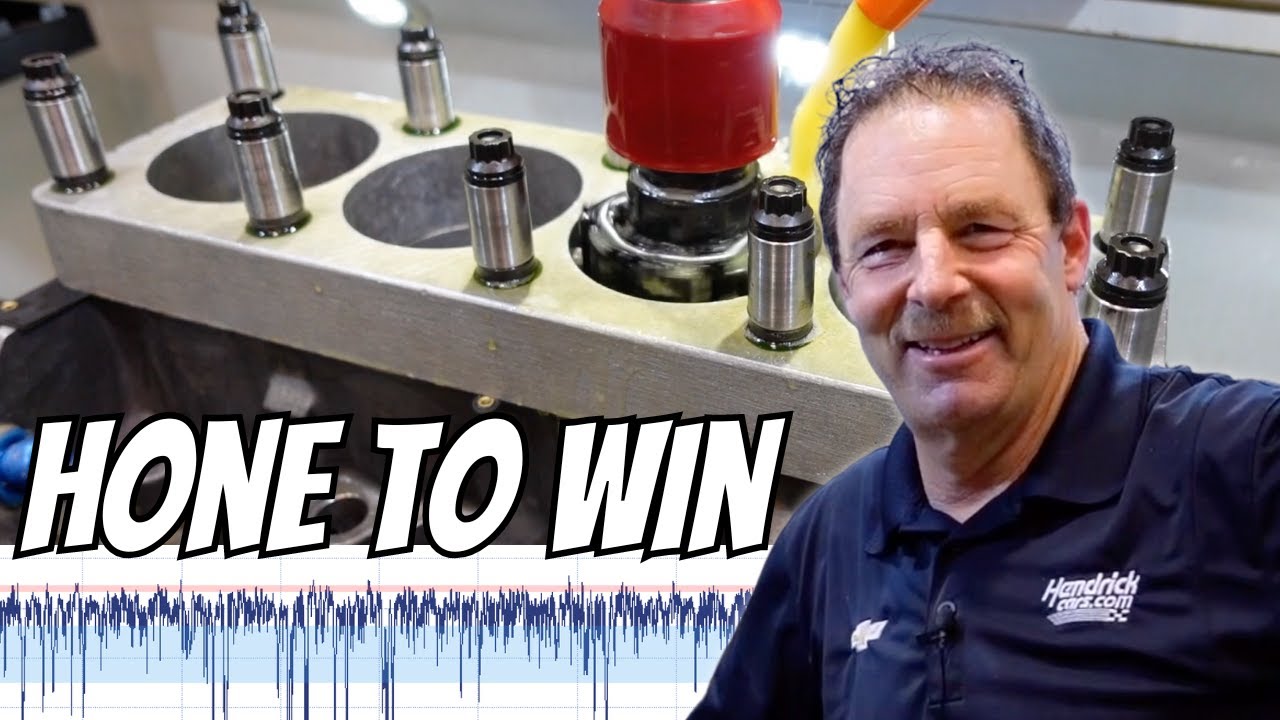
How To Hone An Engine Block - Greg Anderson Shares His Secrets.
When NHRA Pro Stock's winningest driver opens the door to his shop and shows you how to hone an engine block , you might want to get out a note pad! Greg And...
blue oil smoke usually indicates oil being burnt in the combustion chambers,
in most cases its valve guides or valve seal wear but rings might be suspect
that oil has to be coming from some where,
you should see the dipstick on either the engine or transmission reflect its loss over time!
Since the source or path of that oil flow entry, is obviously limited,to several options
you can test to isolate it and find your problems source,
If it can get past the rings, if the rings are improperly installed not (wrong size or installed upside down for example,)
it can get sucked in a leaking intake gasket from the lifter gallery,
if the wrong intake gaskets were used or improperly installed or the heads or intake were improperly machined,
or oil can get sucked in past the intake valve seals and valve guides ,
(lots of potential mis-matched combos here),
and vacuum lines, or a mal functioning PVC valve, could be routing oil or transmission fluid into the carb or intake if they were not properly hooked up you'll obviously need to test to find out whats wrong and reading the links posted below will be rather useful.
theres several areas and Ill point out a few I,ve seen. one of the first things ID suggest,is an old time test,
have a buddy... follow you in his car while you rapidly accelerate your car thru the first three gears then leave it in gear and then, pull your foot off the throttle and let the engine compression, brake or drag the car to a lower speed.
much more oil smoke on acceleration is generally related to high cylinder pressure and oil getting past the ring seal,
much more oil smoke on engine braking generally related to high port vacuum levels and bad valve seals or valve guides,
being worn, the next test,is to pull the intake and inspect carefully, you should easily see indications of a leaking intake gasket or bad valve guides under close visual inspection, thus you may find and determine if the oils entering the cylinders thru the heads or past the rings,it helps to know if the route the oil takes into the cylinders is thru the heads or past the rings,thus related to the heads or the rings.
don,t assume anything ,
take notes and personally measure all critical dimensions
look for badly installed or missing parts
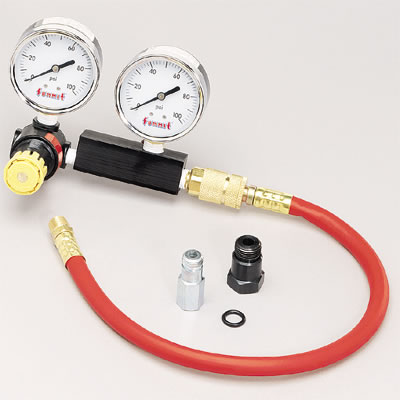
http://garage.grumpysperformance.com/index.php?threads/leak-down-test.332/#post-406
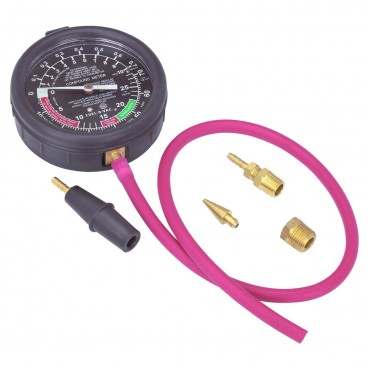
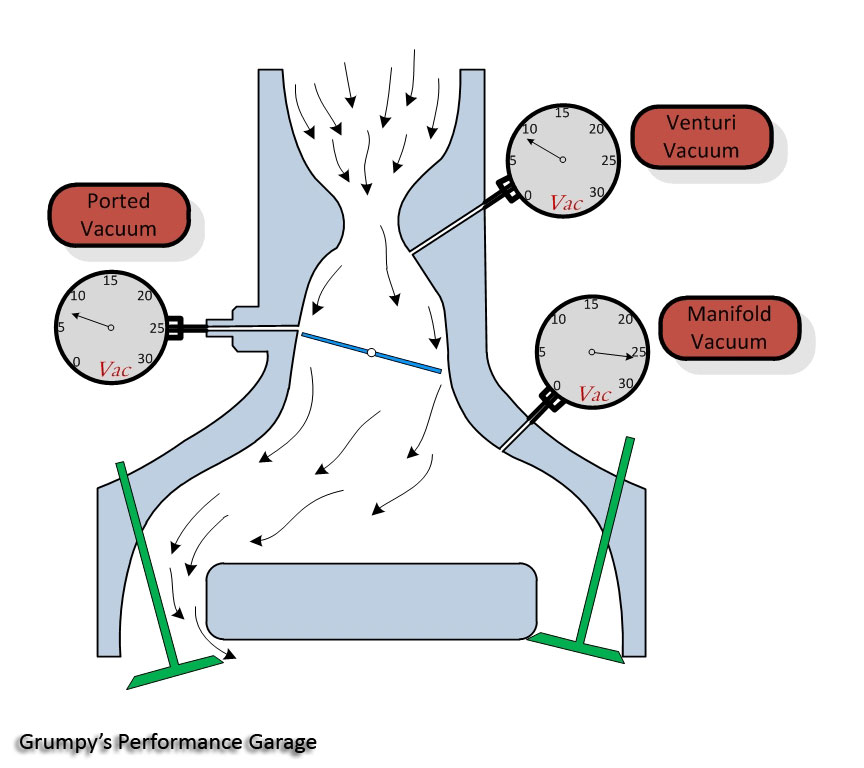
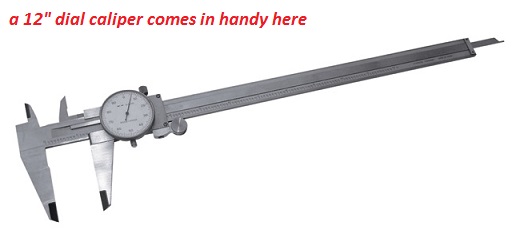
example
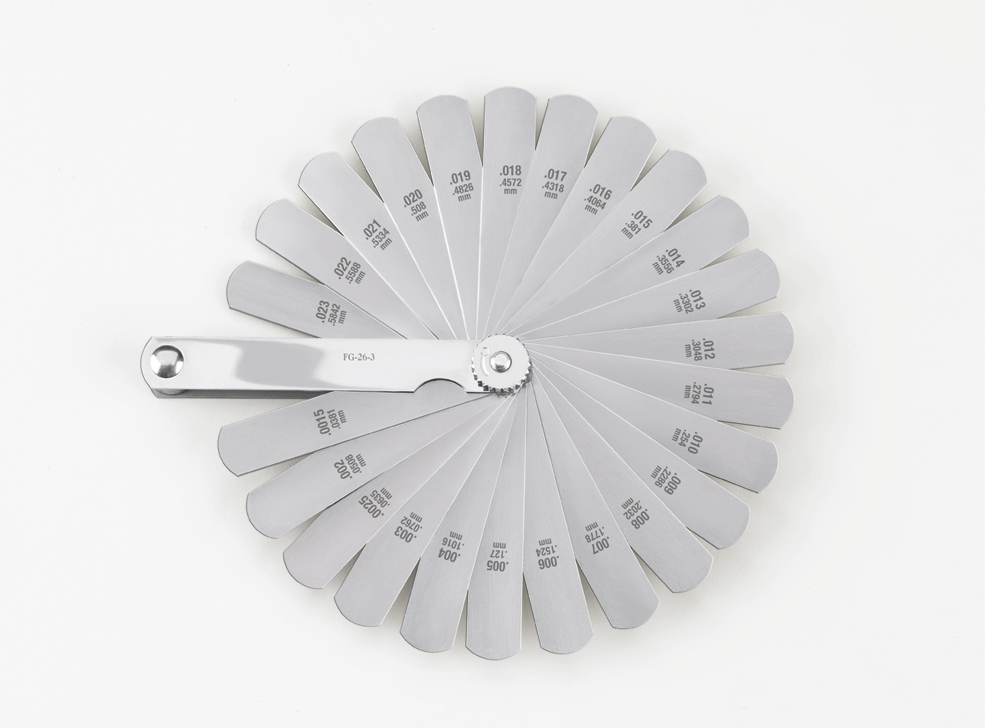
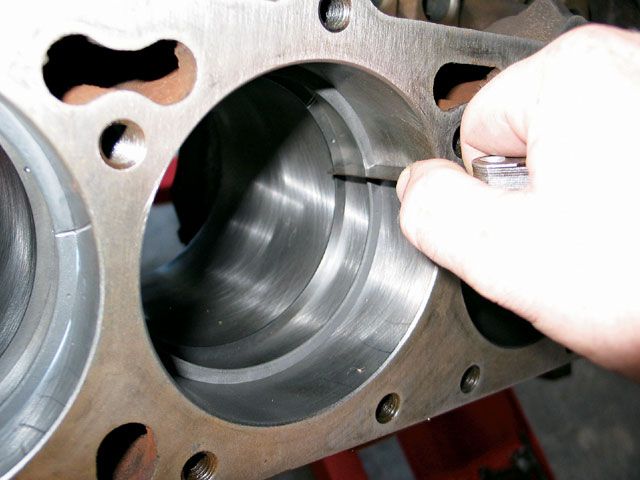
I just went through this with a neighbors son, who built his first engine, he ordered the new rings ,pistons etc. and had the local machine shop hone the cylinders after cleaning the block and installing new cam bearings, it smoked like a mosquito spray truck, we pulled it down and on inspection found the pistons were standard bore but the block was .030 over bore!
he we all learn from mistakes and this kid assumed the block he used had never been rebuilt
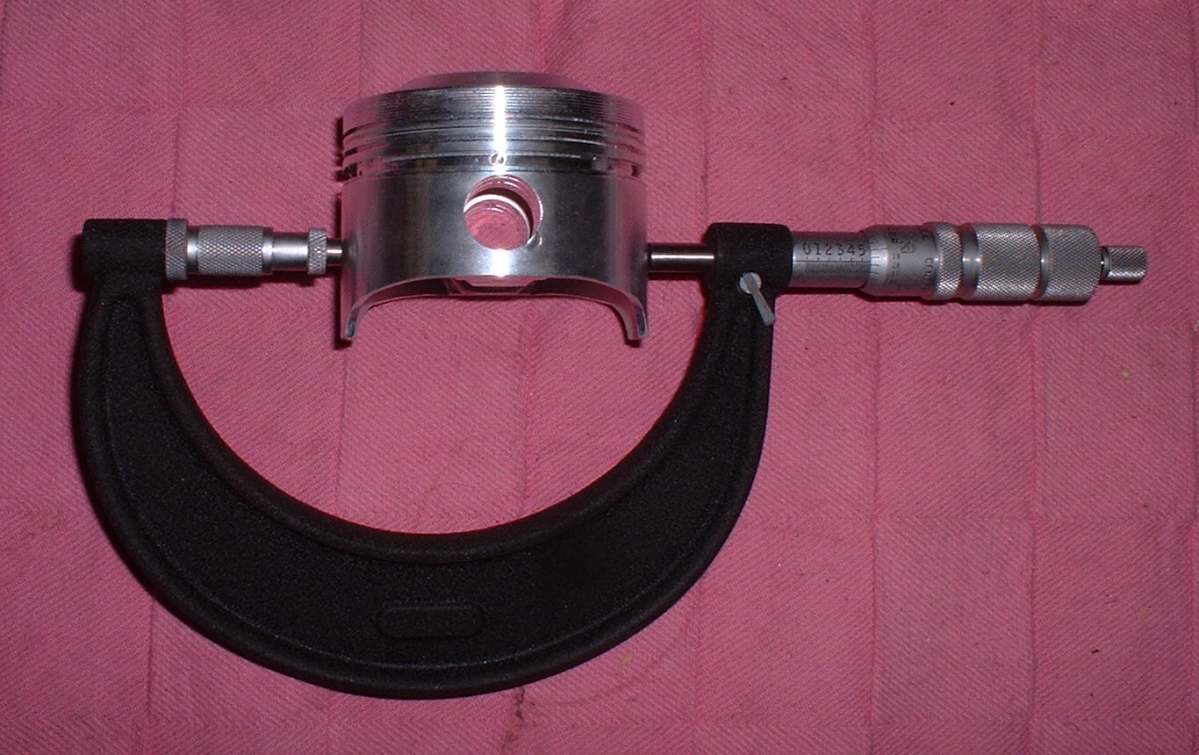
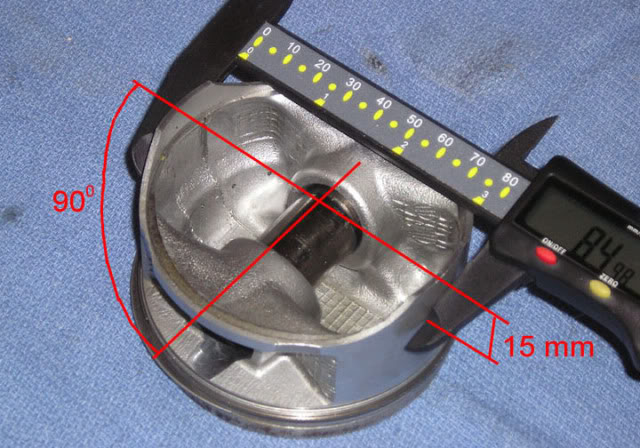
obviously he will require new pistons, rings and a gasket set at a minimum, to get it back together correctly and balancing it would not hurt either, reading links here will help
http://garage.grumpysperformance.com/index.php?threads/precision-measuring-tools.1390/#post-68861
http://garage.grumpysperformance.co...g-and-installing-connecting-rods-pistons.247/
http://garage.grumpysperformance.com/index.php?threads/maximizing-piston-to-bore-ring-seal.3897/
http://garage.grumpysperformance.co...r-fighting-the-correct-fight.3234/#post-12912
http://www.cylinderheadsupply.com/valve-guide-tools-guide-top-cutters.html
http://garage.grumpysperformance.co...ny-ideas-new-engine-smokes-at-start-up.15778/
I was talking with one of my old high school friends (damn that was like 50 years ago)
he reminded me that , even back then guys panicked and failed to research problems,
I had a friend sell a 396 1967 chevelle back in about 1970 when the (ENGINE BLEW UP) no noise,
just tons of oil smoke out the exhaust and it ran like crap, all the plugs oily...
the other friend bought it for $1800 diagnosed the problem and replaced a transmission modulator valve that was leaking trans fluid into a vacuum line for under $40
IF YOUR TRYING TO FIND THE SOURCE OF EXHAUST SMOKE,
one trick is to hold a sheet of CLEAN typing paper in front of the exhaust and have a friend start the car, the smoke should stain the paper making its contents/source far easier to diagnose
be aware that condensation, trapped in the engine , can cause the oil to look like lard or rancid butter, if your PVC valve won.t clear the moisture this can be a problem with engines that don,t get run frequently as moisture plus exhaust gases can form acids
water=wet, possibly rusty, condensation
coolant=smells like coolant, looks different and generally indicates bad head gasket or cracked heads
oily, looks and smells oily, generally rings or valve seals, or defective pvc sucking oil from valve covers
reddish & oily, usually indicates a bad modulator valve , allowing the vacuum line to suck trans fluid into carb
gray, smells like fuel usually a badly adjusted carb or bad floats or defective needle& seat valve or defective fuel pressure regulator
black, gray or white soot, can be bad carb or worn catalytic converters, usually smells like sulfur or rotten eggs
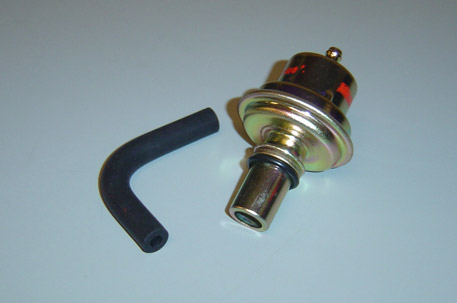
http://www.summitracing.com/parts/tci-350001/overview/
http://www.summitracing.com/parts/bmm-20234/overview/
http://garage.grumpysperformance.com/index.php?threads/locating-vacume-leaks.882/#post-45944
http://garage.grumpysperformance.com/index.php?threads/valve-stem-seals.2091/
http://garage.grumpysperformance.com/index.php?threads/removing-valve-seals.4283/#post-15765
http://garage.grumpysperformance.com/index.php?threads/oily-crud-on-intake-valves.12083/#post-57903
http://garage.grumpysperformance.com/index.php?threads/leak-down-test.10487/#post-44163
http://www.secondchancegarage.com/public/186.cfm
http://garage.grumpysperformance.com/index.php?threads/newer-engine-burns-oil.10028/#post-38941
http://garage.grumpysperformance.com/index.php?threads/what-kills-o2-sensors.3049/#post-8053
http://garage.grumpysperformance.com/index.php?threads/vacuum-gauge-help.9453/#post-34623
http://garage.grumpysperformance.com/index.php?threads/verifying-your-real-advance-curve.4683/
http://garage.grumpysperformance.com/index.php?threads/intake-sucking-oil.4891/#post-13459
http://garage.grumpysperformance.co...manifold-or-other-vacuum-leaks.821/#post-1212
http://garage.grumpysperformance.co...ing-piston-to-bore-ring-seal.3897/#post-11707
http://garage.grumpysperformance.co...w-engine-smokes-at-start-up.15778/#post-94483
http://garage.grumpysperformance.co...breather-hole-in-valve-covers.2005/#post-5328
http://garage.grumpysperformance.com/index.php?threads/valve-seal-selection.10469/#post-43881
http://garage.grumpysperformance.co...c-piston-ring-info-youll-need.509/#post-39785
http://garage.grumpysperformance.com/index.php?threads/piston-to-bore-clearance.4630/#post-39780
YOU WILL ALWAYS NEED to isolate and TEST rather than assume when tracking down any problems, source!
you will be amazed at the number of issues that will NOT be related to what you at first might assume them to Be
Last edited:
